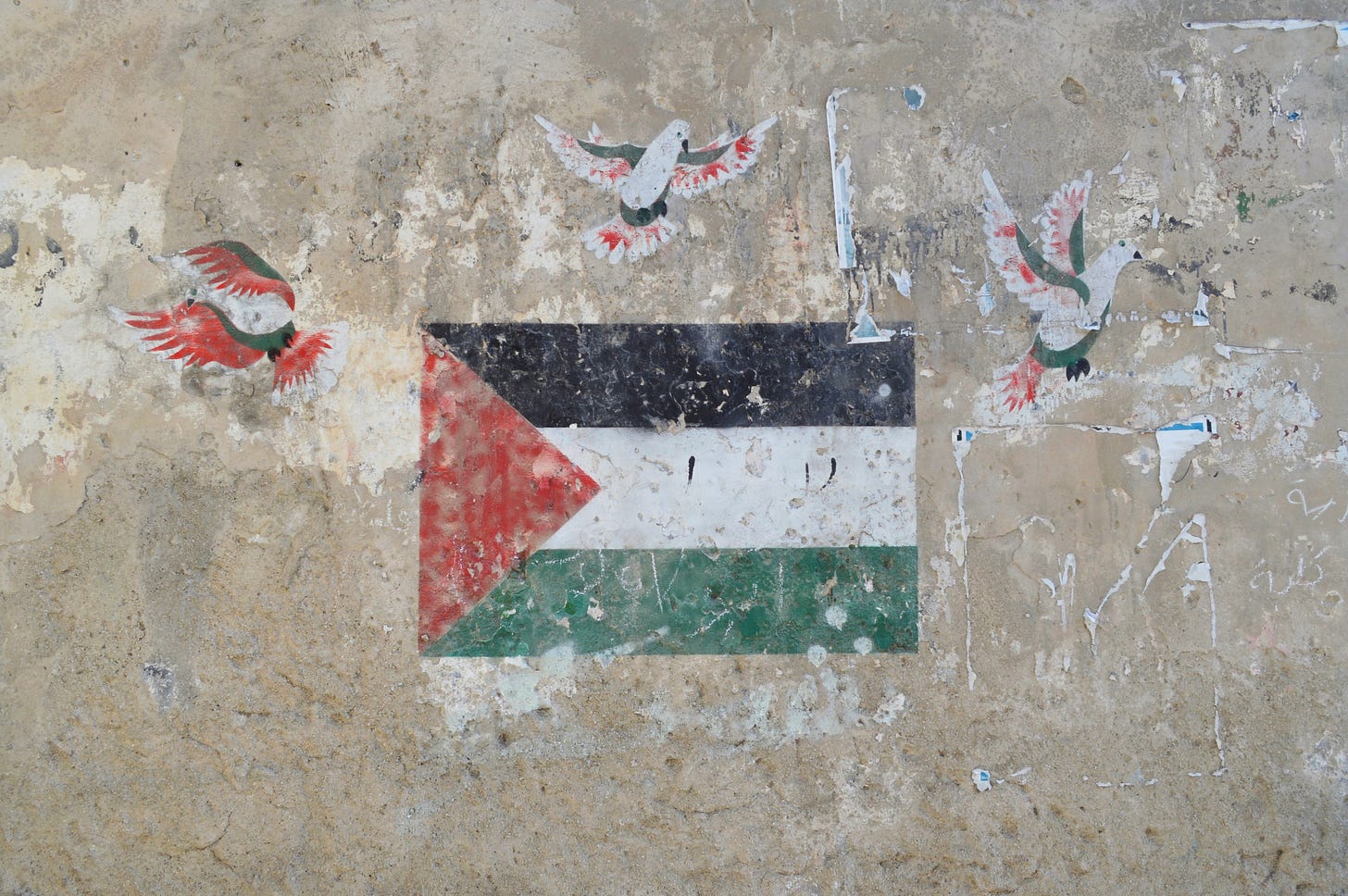secondly
the question of Palestinian freedom isn’t simply about what is true. the question is also about what needs to be said and done now in this place and in this moment given this particular history.
The Palestinian poet Mourid Barghouti once observed how it is easy to blur the truth with a linguistic trick: “Simply start your story with ‘secondly.’
In other words, if you want to turn a narrative in your favor, omit the prequel that gives historical context.
My friend Kenji Kuramitsu, who quotes Barghouti in an essay for the Pacific Citizen, expounds on this: when we start our story with secondly, “the arrows of the Native Americans alchemize into the first volleys of unnecessary warfare, the uprisings of enslaved persons become avoidably excessive, and Gandhi is transfigured into the cruel tormentor of the gentle Raj.”
What Kenji and Barghouti speak to is what philosopher James KA Smith calls a spiritual dyschronometria—an inability to keep time and a lack of awareness of what time it is.
Smith explains further:
We might think of this as the temporal equivalent of colorblindness—a failure to appreciate the nuances and dynamics of history. We can’t discern why when makes a difference. We don’t recognize how much we are the products of a past, leading to naivete about our present.
It is a “temporal tone deafness.”
Smith uses the example of “Black Lives Matter” - explaining how replying with a statement like “All Lives Matter” is not wrong in principle, but it is time.
The question isn’t simply what’s true; the question is what needs to be said and done now, in this place and in this moment given this particular history.
When I say “Free Palestine,” I am not saying that Jewish or Israeli lives don’t matter. I’m not saying that Israel should not exist as a nation.
Rather, I am placing my focus on the millions of Palestinians, “in this place and in this moment given this particular history,” who must be free to live and flourish. Violence and occupation must end. A permanent ceasefire must be demanded and achieved. We must rectify the evil and oppressive consequences of settler colonialism across the world. We must recognize what is demanded of us here and now: a Free Palestine.
Reading:
Miroslav Volf, A Public Faith: How Followers of Christ Should Serve the Common Good (Baker, 2011)
Josiah R. Daniels, “Progressive Christians Aren’t Always Better Neighbors” (Sojourners)
Watching:
Dune: Part Two
Oppenheimer





